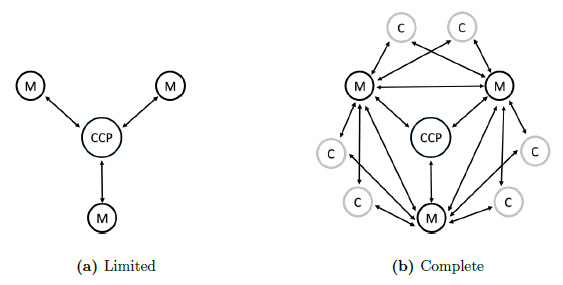How Safe are Central Counterparties in Derivatives Markets?
Published: November 2, 2017
How likely is a central counterparty, or CCP, to default after a severe credit shock? This working paper uses credit default swap data to estimate the direct and indirect impacts of a default by CCP counterparties in derivatives trades. It finds that a CCP could be more vulnerable to failure than conventional stress tests have shown. (Working Paper no. 17-06)
Abstract
We propose a general framework for estimating the likelihood of default by central counterparties (CCP) in derivatives markets. Unlike conventional stress testing approaches, which estimate the ability of a CCP to withstand nonpayment by its two largest counterparties, we study the direct and indirect effects of nonpayment by members and/or their clients through the full network of exposures. We illustrate the approach for the credit default swaps (CDS) market under shocks that are similar in magnitude to the Federal Reserve’s 2015 Comprehensive Capital Analysis and Review trading book shock. The analysis indicates that conventional stress testing approaches may underestimate the potential vulnerability of the main CCP for this market.
Keywords: Credit default swaps, central counterparties, stress testing, systemic risk, financial networks
JEL Classification Numbers: D85, G01, G17, L14
